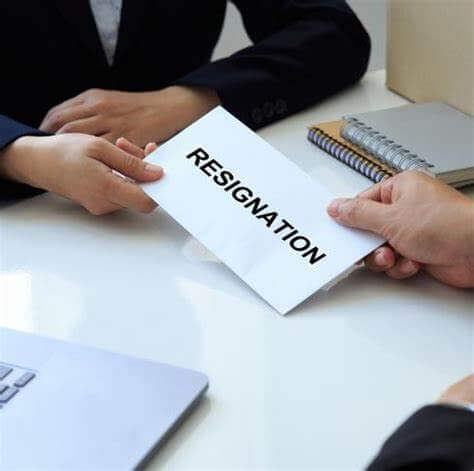Understanding the Purpose of a Resignation Letter
The purpose of a resignation letter is to formally notify your employer of your intention to leave the company. It is essential to submit a resignation letter to maintain a positive relationship with your employer and to ensure that you receive any benefits and payments to which you may be entitled. The letter should explain the reason for your resignation, the date of your last day, and other relevant information. It should also thank your employer for their support and express your appreciation for your time at the company. Additionally, keeping the letter professional and polite is essential to maintain good relations with your former employer.
The Dos and Don’ts of Writing a Resignation Letter
Writing a resignation letter can be a complex process, so here are some tips on the dos and don’ts of writing a resignation letter:
Do:
- Provide sufficient notice – Let your employer know as far in advance as possible of your intention to leave.
- Express gratitude – Show appreciation for the opportunities you were provided and the experiences you had at the company.
- Keep it brief – Your letter should be concise and to the point.
- Offer assistance – Offer to help with the transition or provide contacts who can help fill the position.
Don’t:
- Badmouth the company – It’s essential to remain professional and polite when writing your letter.
- Be vague – Explain the reasons for your departure as clearly as possible.
- Make demands – Do not use your resignation letter as an opportunity to make demands or negotiate.
- Overshare – Avoid including too much personal information in your letter.
Formatting Your Resignation Letter:
Formatting your resignation letter is an integral part of leaving your job. It should be professional and polite and include all the relevant information your employer needs.
When writing your resignation letter, you should include the following components:
- A professional salutation and opening statement.
- An explanation of why you are leaving the job and the date of your last day.
- An expression of gratitude for the experience and opportunities provided.
- An offer of assistance with the transition.
- A closing statement and signature.
You should have an introduction, body, and conclusion when organizing your resignation letter. The introduction should include your name, position, and resignation date. The body should consist of your reasons for leaving, your gratitude and appreciation, and any offers of assistance. The conclusion should consist of a closing statement and your signature.
It is also essential to keep the letter concise and to the point. You don’t need to go into too much detail about your reasons for leaving, but you should be clear and direct in your explanation. Additionally, it is essential to remain professional and polite to maintain good relations with your former employer.
Drafting Your Resignation Letter:
When drafting your resignation letter, it is essential to clearly state your intentions and express your gratitude to your employer.
The letter should begin with a professional salutation and a statement of your intention to resign. Make sure to include the date of your last day of work. It is also essential to explain the reasons for your resignation. However, it is not necessary to go into detail.
After stating your intentions, you must express gratitude to your employer for the experience and opportunities you were provided. You should also offer any assistance you can provide during the transition period.
Finally, end your letter with a closing statement and your signature. Keep your letter concise and to the point, and remain professional and polite. This will help you maintain good relations with your former employer.
Handling Your Resignation with Professionalism:
When resigning from a job, handling the situation professionally and maintaining positive relationships with current and past colleagues is essential. To do this, it is necessary to provide a reasonable amount of notice to your employer, give fair and professional information, and thank the company and colleagues for their support. Additionally, it is essential to remain professional in all communication with colleagues during this transition and avoid any negative comments or gossip. Finally, keeping in touch with colleagues and maintaining a professional relationship with them, even after you have left the company, is essential.
Looking Ahead:
After resigning, you must remain connected to your former colleagues and build your professional network. This can be done by keeping in touch with old colleagues, attending networking events, joining professional organizations, and staying active on social media. Additionally, last update on the industry you were a part of and be proactive in finding new opportunities. Building a solid network will help you stay connected to your former colleagues and also help you discover new opportunities and stay up to date on the latest industry trends.

